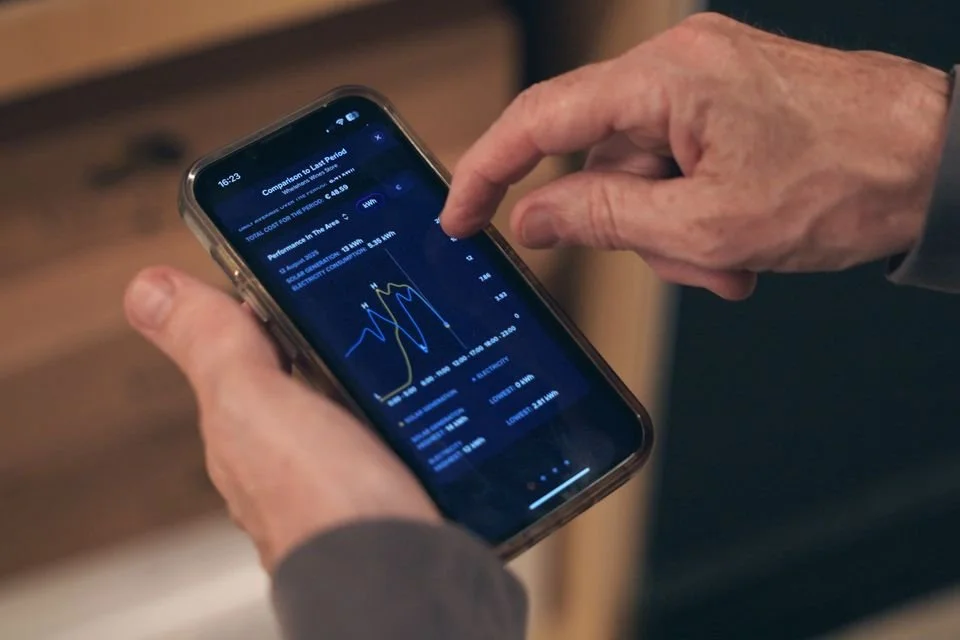How one Irish business turned soaring energy bills into savings
Sustainability is no longer just a green initiative; it has become a financial necessity
Irish businesses are seeing electricity bills rise by thousands of euros annually, often without explanation. For many, energy costs have become a “black box”: unpredictable, and unsustainable.
Whelehans Wines, headquartered in Loughlinstown Co.Dublin, was one such business. Their electricity bills had climbed above €30,000 a year. “All we had were escalating bills,” recalls owner David Whelehan. “We knew we had to control it, and we knew we had to understand what was going on.”
This is a story many businesses know too well: energy is treated as a fixed, but rising cost, when in reality, it is a cost that can be measured, managed, and reduced. The highest costs for Irish businesses in 2025 are labour, insurance, and energy, and while labour and insurance are largely fixed, energy is not.
On their search for a way to take control of their energy, Whelehans’ found the Watt Footprint energy platform which was built to give businesses control and visibility of their energy. Independent of an energy supplier, the company is solely focused on saving energy and putting control back in the hands of businesses.
The platform provides real-time insights from energy monitors, combined with bill data and the expertise of the Watt Watchers team remotely tracking trends, spikes, and inefficiencies, an immediate reduction in both energy use and costs.
“The platform allows us to monitor our energy usage through very useful graphs, and altogether we can completely understand our business,” David said. “Now we have a way of understanding, implementing change and seeing the benefits.”
This not only provides confidence, but also enables data-driven decisions around investment, upgrades, or adjustments to current operations. The guesswork is gone and efficiency is the driver.
One platform with multiple solutions, Watt Footprint unites a fragmented energy industry, offering a full suite of services from energy monitoring, ESG reporting, grant acquisition, energy rate optimisation and project managing energy upgrades. The mission is to deliver data-driven energy savings -providing advice and analysis of the data so that you can confidently make the right decision for your business.
Make it stand out
One platform with multiple solutions, Watt Footprint unites a fragmented energy industry, offering a full suite of services from energy monitoring, ESG reporting, grant acquisition, energy rate optimisation and project managing energy upgrades. The mission is to deliver data-driven energy savings, providing advice and analysis of the data so that you can confidently make the right decision for your business.
The impact has been transformative. Whelehans’ Wines are now on track to become carbon neutral by the end of this year. “Once you can measure it, you can manage it. Through the platform we’ve already been able to reduce both our energy consumption and carbon output,” said David.
What began as a cost-saving exercise has now evolved into a model for how people can future-proof their business.
This journey highlights an important truth for Irish business owners: energy is not a fixed cost. It is a controllable one, and in a climate where margins are under pressure and costs are rising, managing energy usage is no longer optional.
“I think this platform will become a standard, because to me, it’s a fundamental business requirement now to be able to manage our energy and carbon emissions.”
Whelehans’ story is not unique, it’s a mirror of what many businesses are facing across Ireland and beyond. Rising energy bills cut into profits and many businesses remain in the dark about where their energy is going. The solution here is visibility. Once you can see where energy is used, you can take informed steps to reduce it.
Watt Footprint don’t just show you the data; it shows you what to do with it. The Watt Wattchers help you make data-driven decisions to reduce your energy and spend, putting the power back in your hands.
In doing so, companies not only improve their bottom line, but they also position themselves as a business ready for the future and the uncertainty of cost fluctuation. Sustainability is no longer just a green initiative; it’s a financial necessity.


